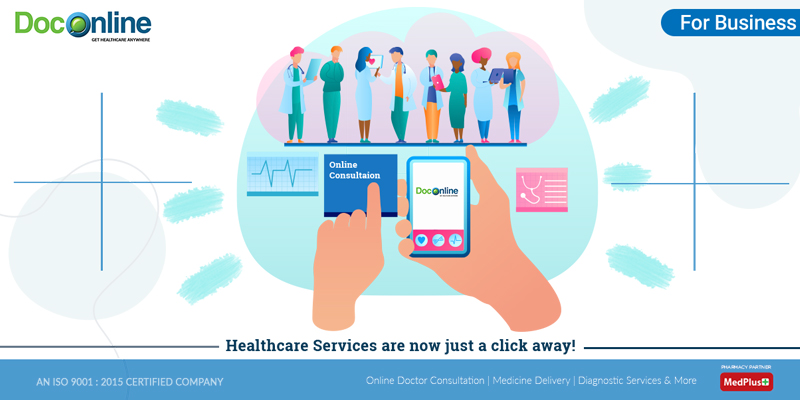Exploring the Development of Subscription Based Healthcare in the Digital Age
Exploring the Development of Subscription Based Healthcare in the Digital Age
Blog Article
The Rise of Subscription-Based Medical Care and Its Effect On Individual Treatment
As healthcare evolves, the subscription-based version is getting grip, guaranteeing to transform patient treatment by using predictability and ease of access. The potential for these designs to reshape medical care delivery increases pushing inquiries about their lasting sustainability and inclusivity. Are these membership services the future of health care, or do they risk leaving at risk populations behind?
Understanding Membership Healthcare Designs
Understanding the idea of subscription health care models includes examining a transformative technique to clinical services that highlights cost and accessibility. These designs, frequently described as direct medical care (DPC) or concierge medicine, have actually emerged as ingenious alternatives to typical fee-for-service medical care systems. Membership medical care allows individuals to pay a set regular monthly or annual cost for a specified set of medical solutions, which might consist of limitless office brows through, routine exams, and basic lab tests, without the requirement for typical insurance coverage invoicing.
The framework of registration medical care models is developed to enhance person treatment by removing third-party payers and intricate payment codes, therefore lowering administrative problems. Doctor can concentrate extra on patient treatment, cultivating more powerful patient-provider partnerships. This design additionally advertises preventative treatment by urging routine brows through, as the financial barrier of per-visit charges is eliminated.
The subscription model typically equips doctor to handle smaller client panels, allowing for more tailored treatment. It straightens economic rewards with client health end results, as carriers are encouraged to preserve patient complete satisfaction and well-being. On the whole, recognizing subscription healthcare models calls for recognizing their prospective to improve how treatment is delivered and accessed.
Benefits for Suppliers and people

For carriers, subscription-based versions supply the opportunity to deepen patient-provider relationships. With a steady income stream, healthcare experts can devote more time to each patient, resulting in an extra thorough and customized treatment experience. This model also decreases reliance on high patient quantities, reducing fatigue and boosting task complete satisfaction. Additionally, the focus on preventive care within registration strategies can bring about far better person end results and minimized long-term medical care expenses. By concentrating on constant care, providers can resolve problems before they rise, eventually benefiting the health care system overall by lowering the problem on emergency and intense care solutions.
Obstacles and Issues
While subscription-based health care models existing countless benefits, they likewise include a collection of challenges and issues that have to be dealt with. Accessibility stays a considerable concern, as these versions often target individuals who can pay for regular monthly charges, possibly leaving out low-income populations. This raises ethical inquiries about equitable accessibility to health care solutions. In addition, the different nature of subscription plans can result in confusion amongst clients relating to protection specifics, potentially leading to unmet assumptions or inadequate care.
Financial sustainability of subscription-based versions is an additional problem. Service providers need to stabilize the set income from subscriptions with the variable costs of medical care services, which might rise and fall because of unexpected clinical demands. This can create pressure to restrict solutions or boost costs, potentially affecting individual contentment and care top quality.
Additionally, regulatory oversight of subscription-based healthcare models is still developing. Attending to these challenges is critical for the fair and successful application of subscription-based healthcare.
Influence On Patient-Doctor Relationships
One significant effect of subscription-based medical care versions on patient-doctor relationships is the potential for improved continuity and customized treatment. By embracing a subscription model, physicians can handle a smaller person panel, enabling for more dedicated time with each individual. This enhanced availability fosters a much deeper understanding of a person's medical history, way of living, and preferences, making it possible for extra customized therapy strategies and treatments.

However, it is essential to recognize that while subscription-based versions may benefit those that can manage them, they could inadvertently broaden healthcare disparities. Individuals who are unable to take part in these designs might experience lower access to customized treatment, possibly impacting their relationships with medical care suppliers. Thus, while the registration design uses appealing benefits for patient-doctor relationships, it likewise positions difficulties that need to be resolved to ensure equitable health care gain access to.
Future of Medical Care Gain Access To

The role of modern technology can not be ignored in this change. Telemedicine systems and digital wellness records promote smooth interaction in between patients and health care providers, damaging down geographical and logistical barriers. Additionally, developments in you can find out more artificial intelligence and information analytics can additionally customize clinical treatment by predicting client demands and maximizing therapy strategies.
However, the future of healthcare access additionally presents obstacles, such as ensuring equity across different socio-economic teams. Policymakers and doctor must collaborate to bridge the electronic divide, guaranteeing that subscription-based designs stay cost effective and inclusive. As these systems develop, they hold the promise of making health care much more easily accessible, reliable, and patient-centric.
Final Thought
Subscription-based health care models are reshaping individual care by supplying a secure cost framework and boosting ease of access. The increase of subscription-based medical care encourages proactive client interaction, which has the potential to boost individual outcomes and satisfaction, signifying a transformative shift in medical care distribution.
As healthcare progresses, the subscription-based version is getting grip, guaranteeing to transform individual care by supplying predictability and access.Subscription-based medical care versions provide unique benefits for both service providers and people, enhancing the general health care experience.As healthcare systems progress, the future of health care gain access to often pivots on the integration of ingenious models and modern technologies.Subscription-based try this website health care versions i thought about this are improving person treatment by providing a steady cost structure and improving access. The surge of subscription-based healthcare urges positive person involvement, which has the prospective to enhance person results and fulfillment, signaling a transformative shift in medical care shipment.
Report this page